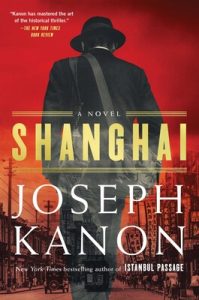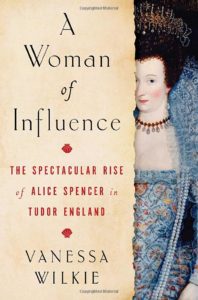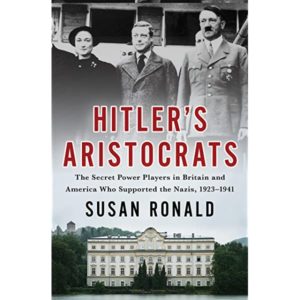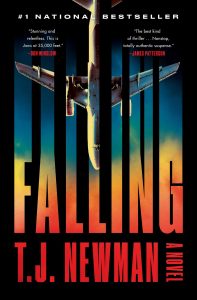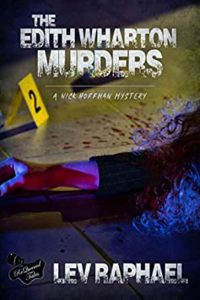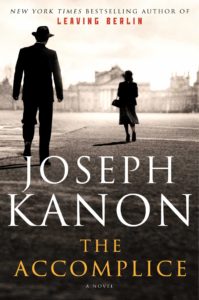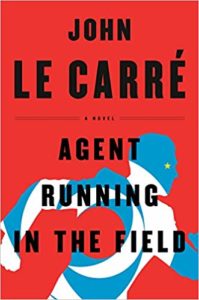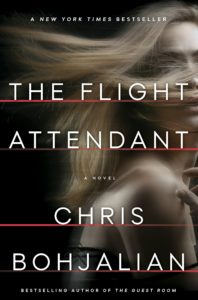★★★★★
Like Alan Furst and C.S. Harris, Joseph Kanon has a remarkable gift for time travel. Open one of his novels and you’re immediately immersed in the sights and sounds of another era–and something even better: how people thought in that period, what they feared, and what they dreamed of.
That gift is on rich display in his new novel, Shanghai, set in 1939 when part of that city was basically a European-controlled enclave–or colony. Take your pick. It’s been the destination for European refugees, many of them Jews, who have fled the Nazis and the inevitable war that will plunge Europe into complete and utter chaos. But while they may be safe in Shanghai in one way, there’s the threat of what Japan, which now controls vast swathes of China, might do if their army decides to seize the city. The “island” they cling to could sink at any moment.
Tension and fear permeate the book, infusing the staccato, jittery dialogue and a narrative that is filled with sentence fragments. Kanon has made those compelling stylistic choices to better plunge us into the lives of refugees who have nothing and now live in a chaotic and dangerous work of smuggling, drug dealing, gambling, prostitution, gangsters, and murder.
The hero is Daniel Lohr who’s escaped from Berlin thanks to a mobster uncle in Shanghai paying for his first-class passage from Trieste. As a writer, Daniel has had no real involvement in anything illegal before, but he learns quickly what the “smart play” is in every situation when navigating the murk of Shanghai’s criminal night life and hyperactive underworld.
Daniel’s deftness at negotiating comes perhaps too fast to be completely believable. Yes, he was in the nascent anti-Nazi resistance, but he never got a real foothold there before he had to flee from the Gestapo. Ironically, on board the ship from Trieste, he meets Colonel Yamada, a member of Japan’s version of the Gestapo, and their lives become balefully intertwined once they reach China.
Yamada is man whose every word, smile, nod, and glance seems like a move in three-dimensional chess. An on-board scene where he subtly spars with a Jewish table-mate is a chilling masterpiece of threatening understatement.
As one high-ranking criminal in Shanghai puts it, however, “The Japanese are the war lords now. They want tribute [and they] really believe they’re a superior people. So they underestimate everyone.” That of course includes Daniel who becomes more and more enmeshed in his uncle’s business.
One of Kanon’s other gifts is the ability to write about sex in a way that is not remotely mechanical: he doesn’t just move bodies around like erotic puppets but stays focused on what the characters are thinking and feeling. They’re people, not just an assemblage of parts. Here’s a brief sample from aboard the ship to Shanghai when Daniel sleeps with another penniless Jewish refugee, Leah:
“Afternoon sex was slower, exploring, running his hand over her skin as if they had all the time in the world. Nights were like the first one, furtive, rushed, one ear cocked toward the hall, half expecting footsteps. Every night. The sex fed on itself, their last meal, greedy for crumbs. Again and again, the hunger part of some larger defiance, outrunning whatever was chasing them. You can’t get me. Not a romance, an escape.”
Shanghai is a short, lean novel, not remotely as dense and enveloping as Kanon’s Alibi set in post-WW II Venice, for instance, but it punches way above its weight with gripping characters and scenes, and an explosive finish made for a miniseries.
Lev Raphael is the former crime fiction reviewer for The Detroit Free Press and the author of nine mysteries and one thriller, along with seventeen other books in many genres. Raphael has also reviewed books for The Washington Post, The Jerusalem Report and a handful of public radio stations in Michigan where he had his own interview show. His author guests included Salman Rushdie, Erica Jong, Julian Barnes, and Doris Kearns Goodwin.

